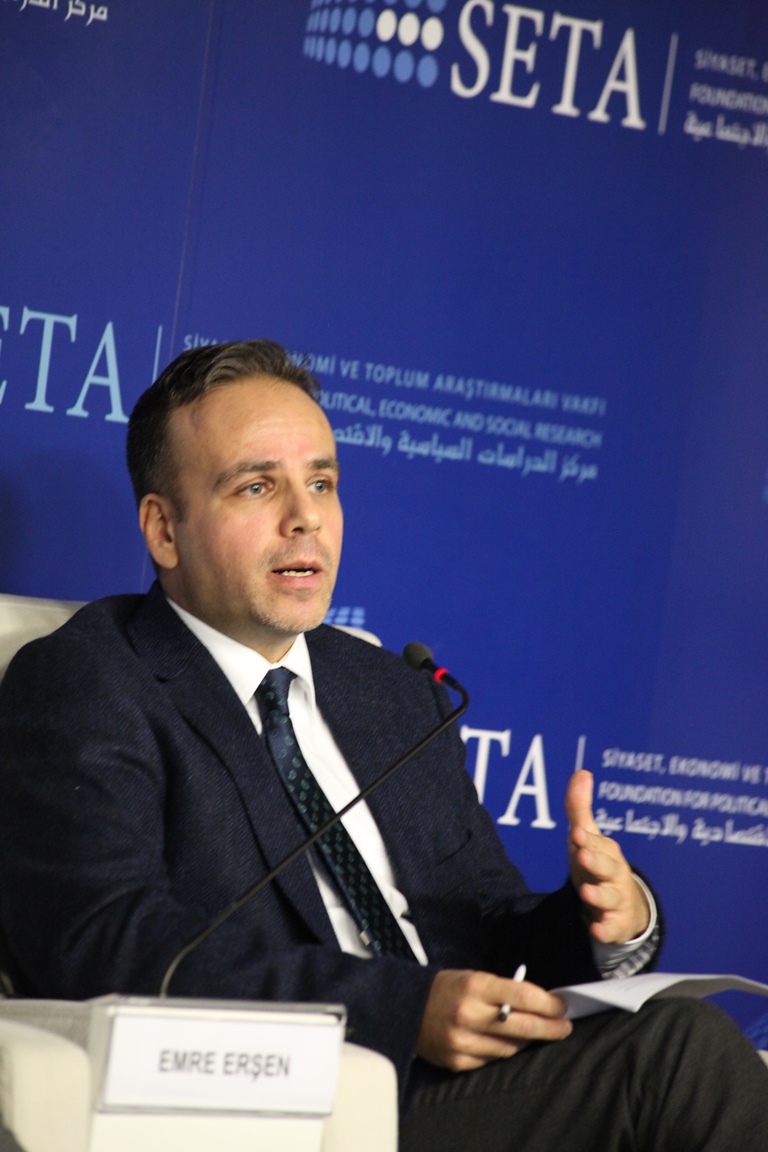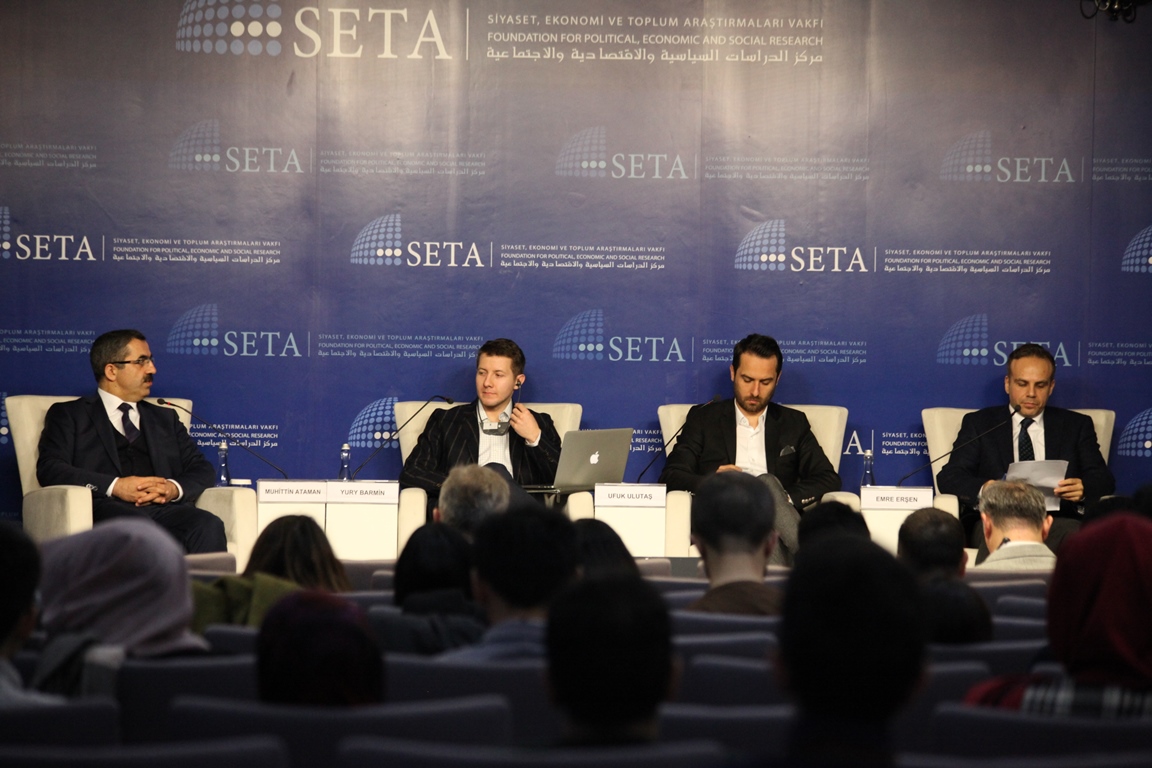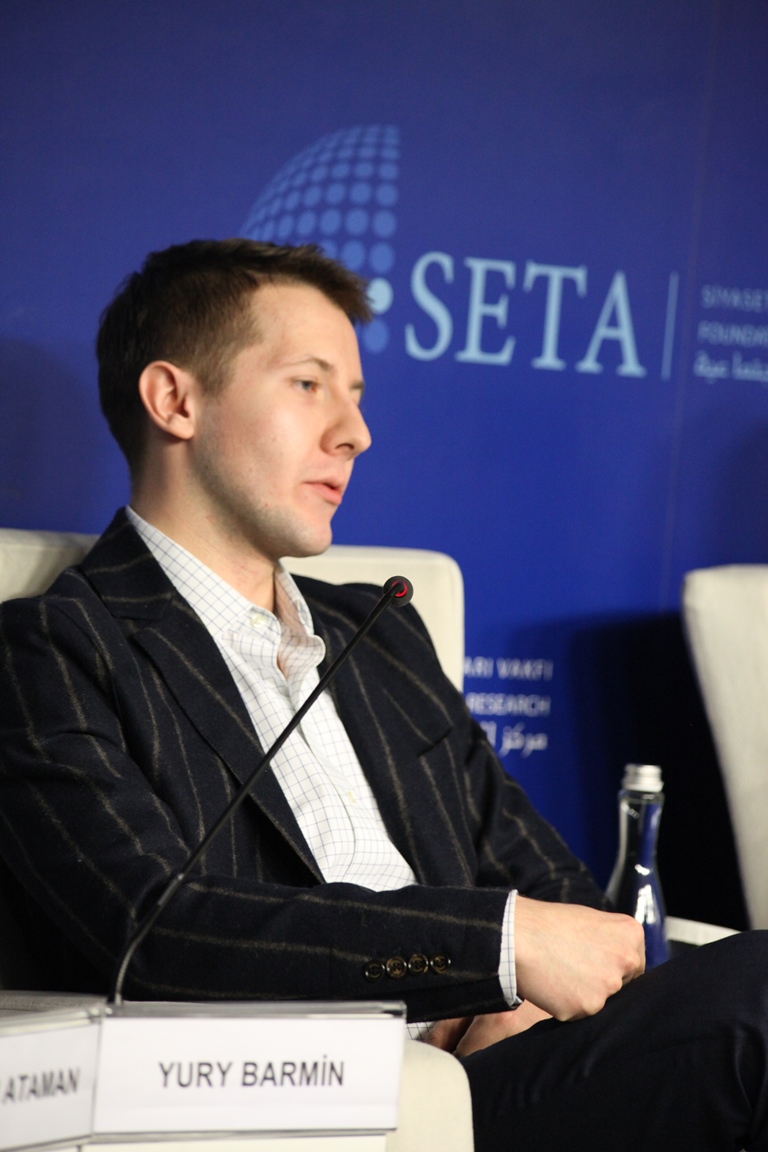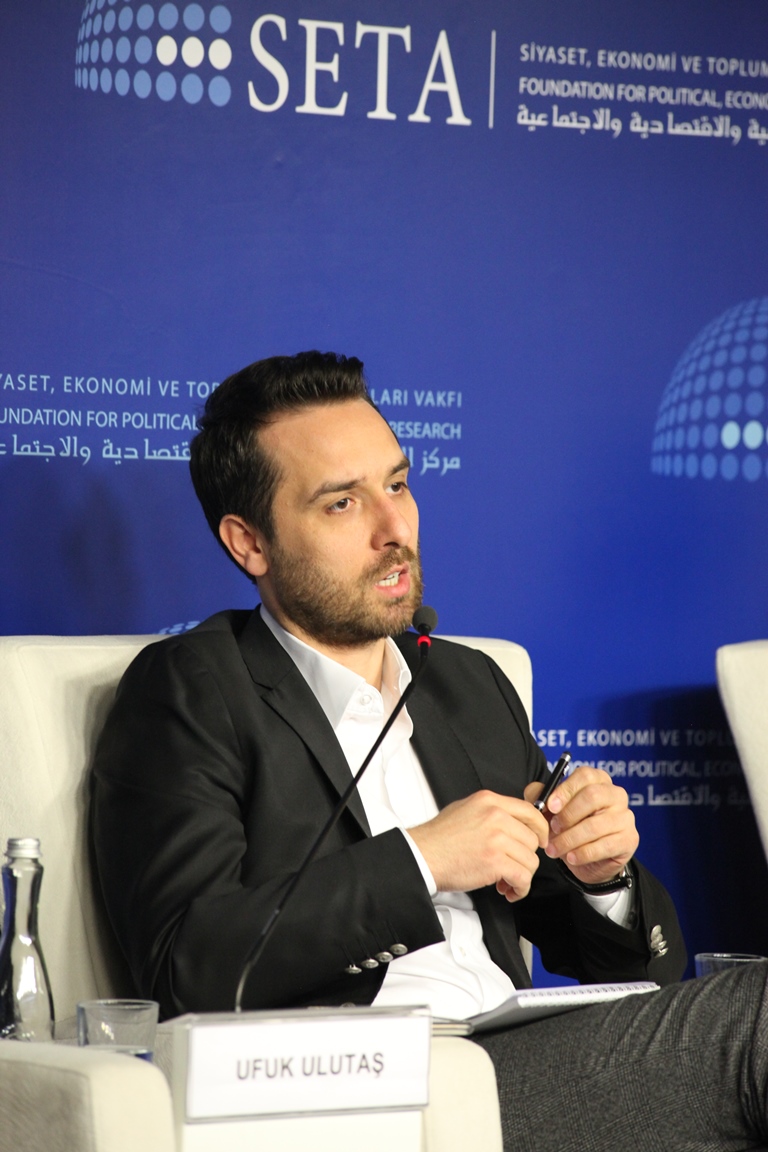Moderator: Muhittin Ataman, Insight Turkey
Panelists: Yury Barmin, Russian International Affairs Council
Emre Erşen, Marmara University
Ufuk Ulutaş, SETA
Yury Barmin
Yury Barmin discussed the relevance of Russia in the Middle East, especially in Syria. He emphasized that as a political strategy Russia provides weapons to the region establishing a connection with many countries. This policy is used as a tool by Russia to influence the policies of these client states. He argued that Russia is a vital actor in the region but is waiting for the perfect time to take action. Russia’s intentions to become a global power depend on its influence and how well it can sustain relations with the other actors in the Syrian crisis. Observing the U.S. and realizing its deficiency in politics toward the Middle East, Russia stepped up and became an important factor in the region. While evaluating Russian politics, Barmin also argued that Russia is a country that uses hard power and doesn’t know how to balance it with soft power. Therefore, Russia’s diplomatic relations will need to develop further if they seek to be an active power in the Middle East. In terms of domestic politics, Russia is searching for ways to control the Muslims in Russia as well as the Muslims in the Middle East.
Emre Erşen

Ufuk Ulutaş
Ufuk Ulutaş focused on the impact of Russia’s role in the Middle East. He argued that Russia’s growing role in the Middle East and especially in Syria is because of the vacuum created as a result of the U.S.’ lack of strategy. Hence, Russia has turned this into a benefit and started to play a decisive role in the region. When comparing the U.S. and Russia, Ulutaş argued that Russia seems to support its allies all the way and this is how it maintains strong relations, unlike the U.S. which instead of supporting its traditional allies is supporting different terrorist organizations. Another major difference from other actors in the region is that Russia has already determined a strategy for the Syrian crisis. Moreover, Ulutaş stated that in Syria, Russia has fulfilled its goal and is now working on perpetuating the success. Lastly, Ulutaş emphasized that Russia’s negotiation with other countries indicates that it is taking charge of the matter and when the Syrian conflict will be resolved it will be the leader of the negotiation process.





